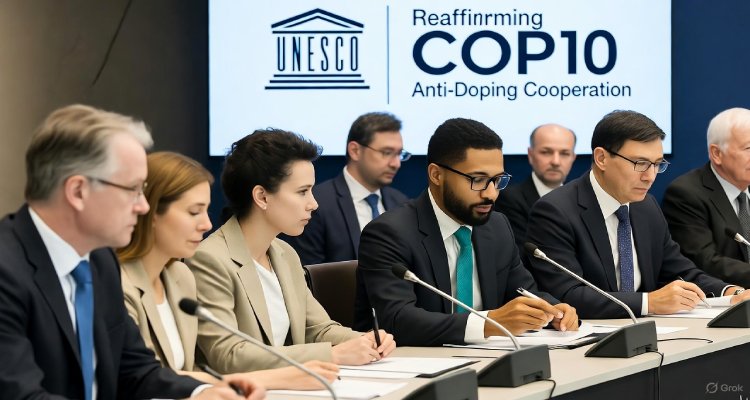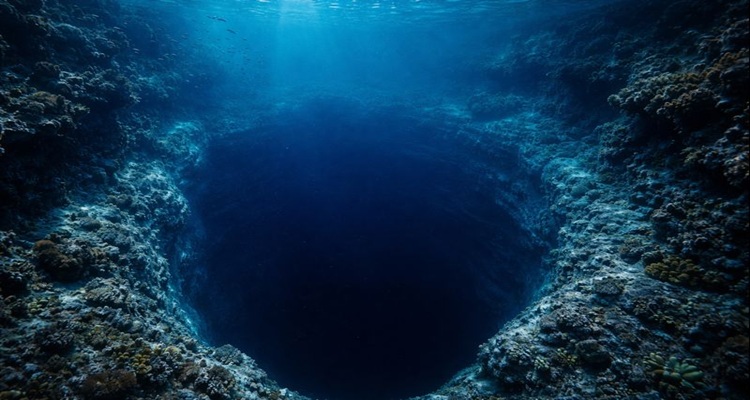India Reaffirms Commitment to Clean Sport at UNESCO’s COP10 on Doping in Sport

India reaffirmed its role in promoting clean sport at UNESCO’s 10th Conference on the International Convention against Doping in Sport, marking 20 years of integrity-driven progress.
Introduction: A Global Stand for Integrity in Sport
As the world marked two decades of unified action against doping in sport, representatives from 192 nations gathered at UNESCO Headquarters in Paris from October 20 to 22, 2025, for the 10th Session of the Conference of Parties (COP10) to the International Convention against Doping in Sport. The historic session reaffirmed the collective commitment of the global sporting community to safeguard integrity, ethics, and fair play—principles that define the very spirit of athletic competition.
For India, the convention was a moment of pride and responsibility. The nation was re-elected as the Vice-Chairperson of the COP Bureau for the Asia-Pacific region (Group IV) for the 2025–2027 term, underscoring its growing leadership role in promoting clean sport worldwide.
The Global Framework: Understanding the Convention
Adopted in 2005 and enforced since February 1, 2007, UNESCO’s International Convention against Doping in Sport remains the world’s only legally binding multilateral treaty addressing doping. Today, with 192 States Parties, it acts as a cornerstone in international efforts to harmonize anti-doping laws, enforce ethical conduct, and ensure that athletes across nations compete on a level playing field.
The Convention’s mission extends beyond punishment—it promotes prevention, cooperation, and education. Its legal framework encourages member states to:
-
Strengthen international collaboration to protect athletes and ethical values.
-
Limit access to prohibited performance-enhancing substances.
-
Enhance national testing and doping control programs.
-
Regulate the distribution and marketing of nutritional supplements.
-
Invest in education and research for long-term anti-doping awareness.
By providing technical assistance, funding, and training to developing countries, the Convention empowers national agencies like India’s National Anti-Doping Agency (NADA) to implement best practices aligned with international standards.
Highlights from COP10: A Critical Milestone
COP10, convened in Paris, witnessed participation from over 500 delegates, including government officials, sports administrators, UNESCO Member States, and representatives from the World Anti-Doping Agency (WADA).
The session reviewed implementation progress, adoption of scientific advancements in detection, and cross-border coordination for investigation and education. Among the key developments:
-
India’s Re-Election to the COP Bureau: Secretary (Sports) Hari Ranjan Rao and NADA Director General Anant Kumar represented India and engaged in policy discussions with over 190 States Parties. India’s re-election reinforced its growing credibility in anti-doping governance and its regional leadership in Asia-Pacific.
-
Azerbaijan Elected as COP10 Chair: Representing a rotational leadership structure, Azerbaijan assumed the chairmanship for the next term, with Brazil, Zambia, and Saudi Arabia serving as regional Vice-Chairs.
-
20 Years of Progress: Delegates reflected on the Convention’s 20-year journey, acknowledging how global cooperation under UNESCO’s guidance has curbed doping networks, enhanced testing capacity, and fostered accountability among sporting bodies and athletes.
Expert Perspectives: Voices on Clean Sport
Experts argue that the renewed momentum at COP10 arrives at a critical juncture for international sport. Dr. Meera Narayan, a sports policy analyst, described the session as “a turning point for inclusive enforcement,” adding that “transparency in anti-doping governance must evolve alongside scientific and technological innovation.”
WADA’s advisory presence lent scientific and regulatory strength to the discussions. The agency, headquartered in Montreal, continues to play a central role in updating the global prohibited list and supporting national agencies. In India, NADA’s athlete-centric education and testing initiatives—especially before major events like the Paris 2024 Olympics—were recognized as examples of robust implementation.
Public sentiment, too, reflected optimism. Social media and athlete networks echoed support for stronger enforcement against performance-enhancing substances, viewing India’s re-election as a statement of credibility and responsibility within the international sporting fraternity.
The Larger Impact: What Lies Ahead
India’s leadership position in the Bureau offers both accountability and opportunity. As global sports face increasing commercial pressures, the challenge lies in balancing athlete performance and ethical conduct. The next phase of the Convention aims to:
-
Deepen collaboration between governments and anti-doping agencies.
-
Encourage developing countries to build advanced testing infrastructure.
-
Expand educational initiatives at grassroots and collegiate levels.
-
Integrate AI-driven monitoring tools to identify doping trends early.
Domestically, India’s re-election aligns with ongoing reforms in its national sporting ecosystem—emphasizing “Clean Athletes, Clean Nation” as part of NADA’s 2025 Vision Plan. Programs focusing on early education, digital awareness, and research partnerships with universities are expected to play a key role in maintaining deterrence and trust.
Conclusion: Upholding the Spirit of Fair Play
The 10th Session of the Conference of Parties did more than commemorate 20 years of the International Convention against Doping in Sport—it reaffirmed that clean sport is a shared moral responsibility. For India, the extended role at the COP Bureau reflects recognition earned through consistent advocacy and implementation.
As the world of sport continues to evolve amidst rapid scientific and commercial transformation, the convention stands as a reminder that integrity remains the ultimate victory. Upholding that value, across continents and fields, ensures that every medal won reflects true human endeavor rather than chemical enhancement.
Disclaimer: This article is based on verified public information and official releases. It aims to inform readers about India’s participation in UNESCO’s 10th Session on the International Convention against Doping in Sport, without endorsing or representing any organization or authority.










